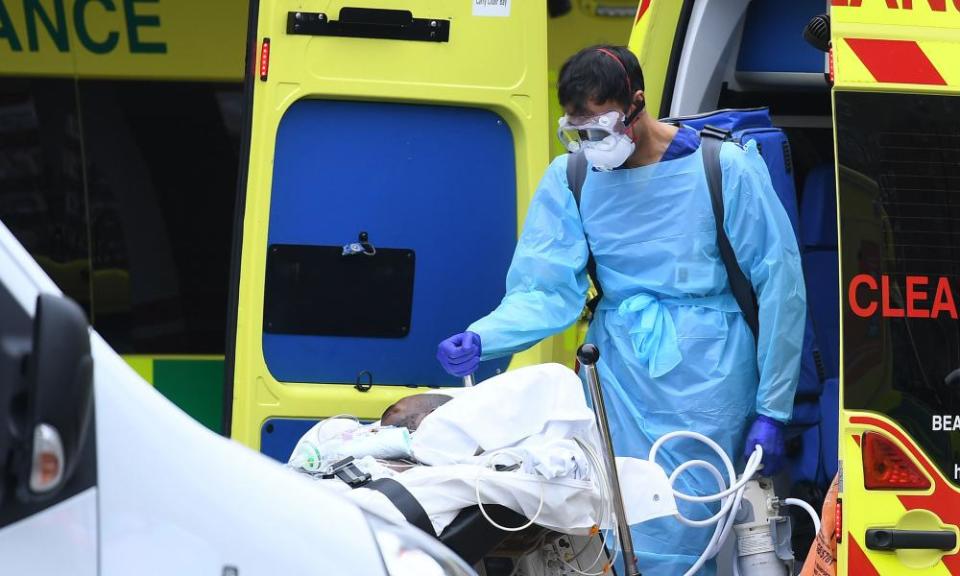BAME groups hit harder by Covid-19 than white people, UK study suggests

Early research into the first patients critically ill with Covid-19 in UK hospitals indicates that black and Asian people are more likely to be badly affected by coronavirus than white people.
The Intensive Care National Audit and Research Centre found that 35% of almost 2,000 patients were non-white, nearly triple the 13% proportion in the UK population as a whole.
Fourteen per cent of those with the most serious cases were Asian and the same proportion were black, according to the study, which has triggered calls for further research to understand why the virus appears to be having a disproportionate impact on non-white ethnic groups.
The study is thought to be the first analysis of its kind anywhere in the world looking at the ethnic breakdown of cases of the virus. On Tuesday the confirmed number of deaths in NHS services among people with a confirmed case of the virus rose to 6,159 people, with more who died at home, in hospices and in care settings yet to be counted.
The study examined admissions to a sample of 286 critical care units in England, Wales and Northern Ireland with confirmed Covid-19 up until noon on 3 April. It also showed the median age of those in a critical condition of all ethnicities was 61 and that almost three quarters were men.
default
The patients most likely to survive in intensive care were those between 16 and 49, 76% of whom were discharged. The number fell to 50% for those aged 50 to 69, and to 32% for those aged 70 and over.
“This is a signal and it needs to be looked at more carefully,” said Kamlesh Khunti, professor in primary care diabetes and vascular medicine at the University of Leicester, who studies health trends in black and minority ethnic populations. “For example, South Asians live in more deprived areas and have more cardiovascular disease and diabetes.”
He added South Asian people often lived in larger, multi-generational households and so “social isolation may not be as prevalent”.
Government figures confirm that cramped housing is far more likely to be a problem for ethnic minorities. Thirty per cent of the UK Bangladeshi population are considered to live in overcrowded housing compared with 2% among the white British population. Fifteen per cent of black African people also live in overcrowded conditions, as do 16% of Pakistanis.
“We need to ensure that every individual, including the BAME population, are following social distancing instructions,” Khunti said. “We have anecdotal information that it might not be happening in certain BAME groups.”
Other socio-economic factors could be at play too. NHS staff, who are particularly exposed to coronavirus, are disproportionately drawn from ethnic minorities.
In London more than a quarter of transport workers operating tubes and buses, which have remained open during the lockdown, are from black and minority ethnic backgrounds.

